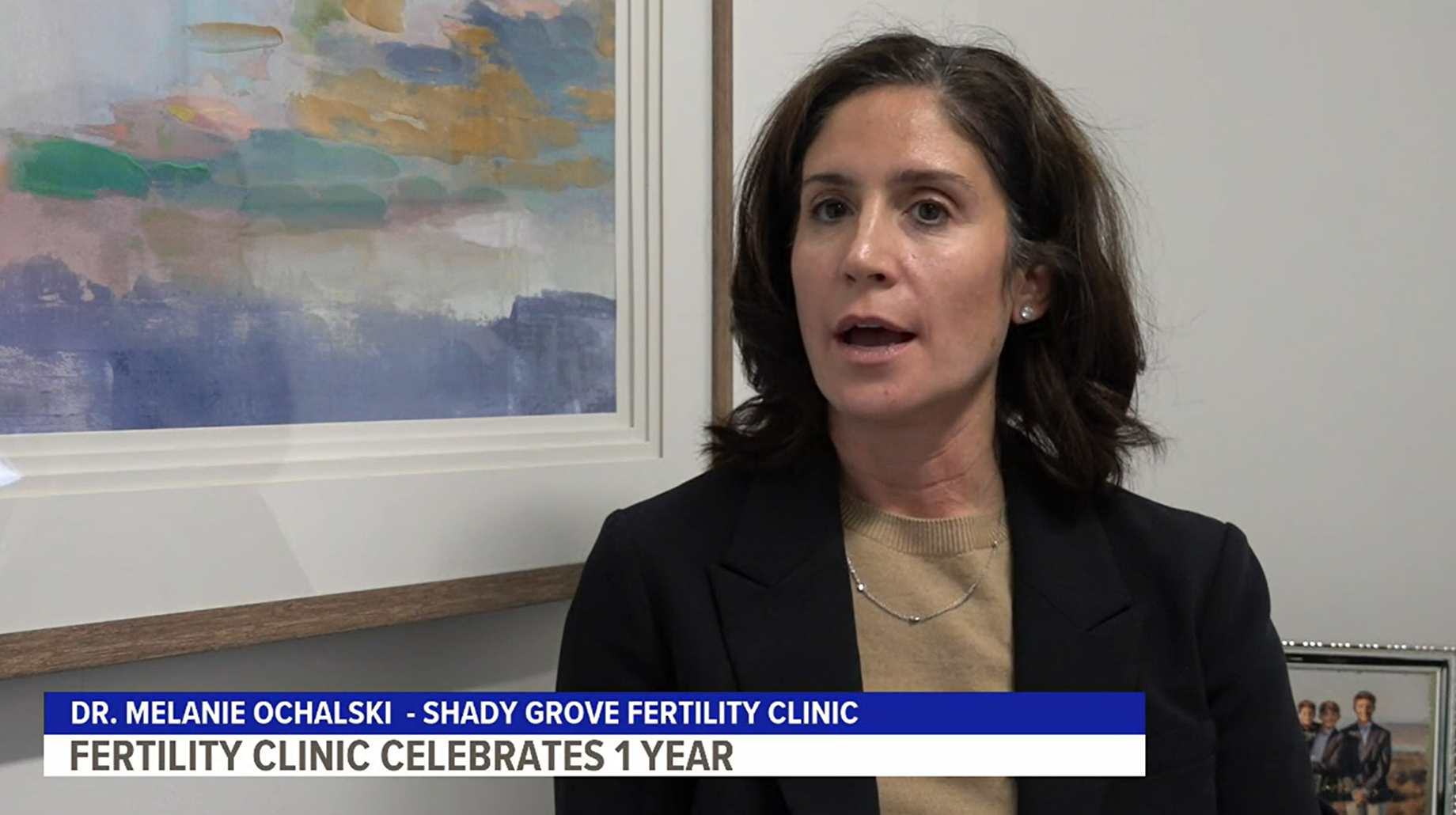Medical contribution by Eric A. Widra, M.D.
Eric A. Widra, M.D., is the Executive Senior Medical Officer for Shady Grove Fertility and the associate director of the Combined Federal Fellowship in Reproductive Endocrinology and Infertility—a post-graduate training program for future leaders in this subspecialty, operated through the National Institutes of Health, Walter Reed National Military Medical Center, and Shady Grove Fertility.
Dr. Eric Widra, Executive Senior Medical Officer for Shady Grove Fertility, examines fertility in your 20s, 30s, and 40s—including potential obstacles and ways to boost your fertility.
Getting Pregnant in Your 20s

From a biological perspective, your 20s represent the decade in which you have the greatest fertility potential. You have the highest chance of getting pregnant naturally each month: 20 to 25 percent. The risk of chromosomal abnormalities is low, as is the chance of miscarriage. That being said, women in their 20s can still experience infertility. While egg quality is not usually an issue for women of this age, it is possible that a woman could have a decreased ovarian reserve (egg supply), abnormalities of the fallopian tubes or uterus, or a male partner with a low sperm count.
- Pregnancy Risks in Your 20s
This is generally a very safe time of life to have children. The risks of miscarriage and pregnancy complications are at their lowest. - Ways to Boost Fertility
Younger women may still have bad habits from their high school or college days. It’s important to maintain a normal BMI, intake the proper nutrients, and limit alcohol and caffeine if you are trying to become pregnant. Smoking is a definite no-no for anyone trying to conceive.
Read more: Prepare Your Body for a Healthy Pregnancy
Read more: Does Drinking Affect Your Fertility?
- When to Seek Treatment
For women in their 20s, Shady Grove Fertility recommends women try to conceive for 1 year before seeking the help of a fertility specialist. However, if there are known fertility factors present, a fertility specialist should be consulted sooner. “In fact, if you aren’t getting your period at all or if your cycles are longer than every 35 days, seek help immediately,” says Dr. Widra. “Talk to your doctor if you have a family history of early menopause or a known history of pelvic abnormalities, sexual dysfunction, or any other medical conditions that might affect fertility, including your partner’s medical problems, which may affect his sperm count.”
Getting Pregnant in Your 30s

A woman in her 30s has an approximately 15 to 20 percent chance of getting pregnant each month. Fertility will gradually decline throughout the 30s, with the greatest decline coming after the age of 35.
- Pregnancy Risks in Your 30s
According to the American Society for Reproductive Medicine, women in their 30s have an increased risk of miscarriage because the quality and quantity of the egg supply will decrease. Women in this age range also often have greater emotional stressors because they feel an added pressure to become pregnant, often because they are afraid of having trouble conceiving. - Ways to Boost Fertility
As with women in their 20s, women in their 30s should maintain a normal BMI when trying to conceive. If a woman has been on a birth control pill for over 5 years, she should also plan to stop it before trying to conceive. “The vast majority of women will revert to their historical cycle pattern and fertility as soon as they stop,” says Dr. Widra. Thus, you shouldn’t have to stop taking birth control too far in advance before trying to conceive, but you should consult with your gynecologist. - When to Seek Treatment
For women between the ages of 30 and 34, they should try to conceive on their own for 1 year before coming to see a fertility specialist; women 35 and 39 should try to conceive on their own for about 6 months. If you have any of the aforementioned risk factors though (lack of menstruation, low sperm count, tubal disease), you should see a specialist sooner. Time can be more important for women in their 30s due to aging. “The real issue with aging is that the opportunity to help couples declines rapidly with age, and time becomes more valuable,” says Dr. Widra.
Getting Pregnant in Your 40s

A woman in her 40s has a less than 5 percent chance of becoming pregnant on her own each month. For a woman age 45 to 49, the chance of pregnancy with her own eggs becomes as low as 1 percent. But hope can exist in the form of donor egg treatment or if a woman froze her eggs at a younger age.
- Pregnancy Risks in Your 40s
Due to the decline in quality and quantity of eggs, obstetrical risks increase with age, such as gestational diabetes, hypertension, chromosomal abnormalities, etc. - Ways to Boost Fertility
While factors relating to age cannot be changed, maintaining a healthy lifestyle is very important for women in their 40s. Having a normal BMI, getting plenty of sleep each night, and limiting stress are important. Many women have found that yoga, acupuncture, exercise, and other holistic health therapies can help reduce stress and keep them healthy: mentally, physically, and spiritually. - When to Seek Treatment
Women in their 40s have the same treatment options available to them as women in their 20s and 30s (intrauterine insemination [IUI] and in vitro fertilization [IVF] to name a few), but the chances of success go down when using their own eggs, unless they froze them at a younger age. While pregnancy with your own eggs can be possible in your early 40s, donor egg treatment may become a more important option. You will carry the child, but the egg will come from a woman in her 20s or early 30s, greatly increasing your chances of pregnancy by circumventing the biological clock.
Read more: Donor Egg Treatment FAQ
Read more: Getting Pregnant in Your 40s
For women in their 40s, Shady Grove Fertility recommends seeing a fertility specialist right away to have diagnostic testing performed.
LEARN: Improving Your Fertility Health
WATCH: Weight and Fertility On-Demand Webinar
Editor’s Note: This post was originally published in June 2015 and has been updated for accuracy and comprehensiveness as of October 2020.







